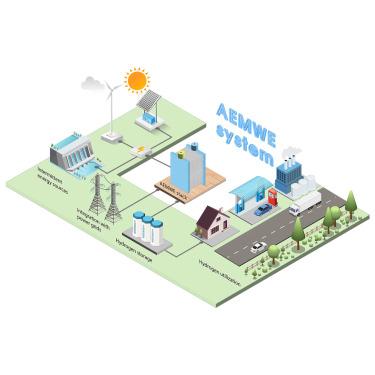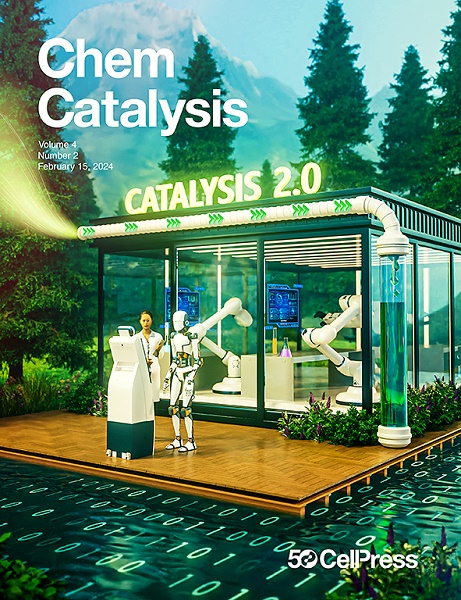阴离子交换膜水电解槽从组件到集成层面的稳定性挑战
IF 11.6
Q1 CHEMISTRY, PHYSICAL
引用次数: 0
摘要
面对迫在眉睫的气候变化挑战,氢有望取代化石燃料,成为一种绿色、可持续的能源资源。阴离子交换膜水电解槽(AEMWE)具有膜价格低廉、非贵金属催化剂、体积小巧、易于与绿色能源集成和适应等多种优势,是一种迅速崛起的制氢技术。AEMWE 涉及电催化剂、阴离子交换膜、膜电极组件、流道设计、系统集成和绿色电力波动工况适应性的典型组合。然而,AEMWE 在单个组件和系统集成层面的运行耐久性都不尽如人意,限制了其大规模应用。开发高耐久性 AEMWE 需要对每个组件进行合理、系统的分析和评估,以实现实际集成。本综述讨论了 AEMWE 系统各层面的耐久性限制因素和提高稳定性的常见策略,从而促进未来高耐久性 AEMWE 的学术和工业发展。本文章由计算机程序翻译,如有差异,请以英文原文为准。

Stability challenges of anion-exchange membrane water electrolyzers from components to integration level
In the face of the imminent challenges of climate change, hydrogen holds the potential to replace fossil fuels as a green and sustainable energy resource. Anion-exchange membrane water electrolyzer (AEMWE) is a quickly rising technology for hydrogen production due to various advantages, including an inexpensive membrane, non-precious metal catalysts, compact size, easy integration with and adaptation to green power, etc. AEMWE involves a typical combination of electrocatalysts, an anion-exchange membrane, membrane electrode assembly, flow channel design, system integration, and green power fluctuation working condition adaptability. However, AEMWE suffers from unsatisfactory operational durability from both individual components and system integration levels, restricting its large-scale application. The development of highly durable AEMWE requires rational and systematic analysis and evaluation of each component for practical integration. This review discusses the durability-limiting factors and common strategies to improve stability based on each level of the AEMWE system, thus fostering future academic and industrial development of highly durable AEMWEs.
求助全文
通过发布文献求助,成功后即可免费获取论文全文。
去求助
来源期刊
CiteScore
10.50
自引率
6.40%
发文量
0
期刊介绍:
Chem Catalysis is a monthly journal that publishes innovative research on fundamental and applied catalysis, providing a platform for researchers across chemistry, chemical engineering, and related fields. It serves as a premier resource for scientists and engineers in academia and industry, covering heterogeneous, homogeneous, and biocatalysis. Emphasizing transformative methods and technologies, the journal aims to advance understanding, introduce novel catalysts, and connect fundamental insights to real-world applications for societal benefit.

 求助内容:
求助内容: 应助结果提醒方式:
应助结果提醒方式:


